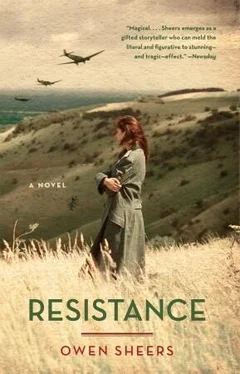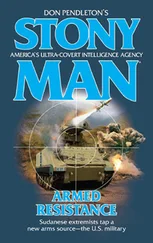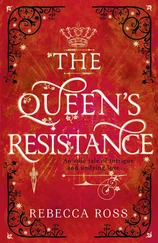Sarah nodded slightly in reply.
“The lettering of the continents and the compass points were in gold leaf,” Albrecht continued. “And of course the whole parchment would have been white. Bright white. It must have been beautiful.”
Albrecht seemed to be no longer talking to Sarah but to himself. He stood close to the glass of the frame, moving his fingers over its surface as he studied details of the map.
“How old is it?” Sarah’s voice was hoarse, lowered in deference to what she didn’t understand.
“Medieval,” Albrecht said. “Late thirteenth century most probably.” He crouched down and pointed at an island in the bottom left-hand corner. “See here?” he said. “These castles were built by Edward the First in the north of Wales. In …” he paused, bringing the torch closer to this corner of the map, “Conway? Is this how you say it?”
“Yes,” Sarah said, kneeling beside him.
“And here, in Car … Car …?”
“Caernarfon.”
“Yes, Caernarfon. Well, this one was begun in 1283, so the map must have been made after that date.”
Sarah thought of the poet’s stories. How he’d creased his face in disgust when he’d told his tales of Edward I’s occupation of Wales. How the English king had killed the bards to silence their voices of dissent. She bent closer to where Albrecht had pointed on the map.
“Why is England an’ Wales down there? That’s not right, is it?”
“I did say it was only an idea of the world,” Albrecht replied. “And an early one too. But this, around Europe, is actually where the map is most accurate. The whole thing is tilted you see, so east is up here,” he shone the torch to the top of the map, illuminating the circle of paradise beneath its apex. “And west is down here. But this is as much a mythical and religious map as a geographical one. Look,” Albrecht shone the torch at a faded illustration of two men hacking away at the limbs of a body. “These are the Essodenes of northern Asia. They were said to eat their parents rather than bury them. And here, beside them, you see that? That is the golden fleece.” His voice had taken on an unfamiliar charge, a tone of impassioned instruction.
They both studied the illustration in silence for a moment, kneeling in the powdery earth on the floor of the hollow. Then Sarah stood up, as if suddenly remembering where she was and with whom.
“What’s it doing here? Why’s it here?”
Albrecht stood up beside her and leant back against one of the wooden struts. “It is being hidden.”
“From you?”
He raised his eyebrows. “I suppose so, yes. Or at least from the SS.”
The SS. Even Sarah, living out the war in her relative isolation, had heard enough about the SS for those two letters to quicken her pulse again.
“What do they want it for?” she said.
Albrecht shone his torch over the Mappa Mundi as if he’d discover the answer to her question somewhere in its inscriptions, cities, and sea monsters. “To be honest,” he said, “I don’t really know. But they do want it. Himmler. You know who he is?”
Sarah thought for a moment. “The small one? With the spectacles?”
Albrecht laughed. “Yes, him. The small one with the spectacles. Well it’s he who wants this map so much.”
How much else should he tell her? It all seemed too fantastical now, after his months in this valley. Would she even believe him? If he told her the famously frugal Himmler had, according to intelligence reports, spent $3.7 million building a castle at Wewelsburg. That inside this castle there was an Arthurian round table at which the “knights” of the SS sat, a silver disc with their names inscribed on the back of each pigskin-covered chair. That alongside Himmler’s museums of weapons and Masonic regalia, the castle was packed with treasures like this Mappa Mundi, looted from occupied territories across the globe. It was of no coincidence, Albrecht thought, that Himmler had chosen Wewelsburg as the site for his castle. The town had, after all, been named after Wewel von Buren, an infamous robber-knight.
But as for Sarah’s question; what did he want the Hereford map for? He still couldn’t answer her because he didn’t know himself. He could only guess that the map played some part in the ritualistic jigsaw of the occult and the ancient that Himmler had constructed as the background for his racial ideology. That somewhere within the legends and Roman topography of its mythic world, the small man with spectacles had located yet another justification for the destruction he and the Nazis had unleashed upon the real one.
In the end he gave her just the simplest facts. “The Nazis are more cultured than you might think, Mrs. Lewis. It could be argued that Adolf Hitler is currently the world’s greatest collector of art.” English may have been Albrecht’s second language, but he was fluent enough for Sarah to catch the note of sarcasm in his tone. “All over this country,” he continued, “art treasures like this map were hidden from the bombing. This was very wise of your government.” He thought of the Ebstorf World Map, which he’d lovingly studied for two whole years. A contemporary of this Hereford map, it had been destroyed in a second by a British bomb. “The entire collection of your National Gallery, for example, is, as we speak, stored inside a mountain in North Wales.” He shone the torch to the bottom of the map, illuminating the crude illustrations of Conway and Caernarfon castles once more. “But now these treasures are hiding from the Reich itself, and not just their bombs anymore.”
“From you.”
“Yes,” Albrecht admitted with a resigned nod of his head. “From me.”
“An’ they sent you because of your studies?”
“I suppose so. And because I was here, nearby. And because of my English.”
“So how d’you know it was here? In the valley?”
Albrecht moved closer to the map again, which now seemed to glow dully in the dark, possessed of its own light. “At the start of the war, the map was evacuated from Hereford Cathedral and stored in the wine cellar of Hampton Court outside London. This was when the finial was removed.” He passed his hand across the top of the dark wood frame. “Later in the war, probably during the Blitz, it was evacuated again, this time to a coal mine in Bradford-on-Avon near Bath. Then, shortly after the German counterattack reached British shores, it was moved again and brought here. I can only assume its original keeper at the cathedral came for it, as a mother might come for her child, and brought it home. Or as near to home as was safe, which was here, Mrs. Lewis, in your valley.”
He held her stare for a moment then placed his finger directly at the centre of the parchment upon what looked like a round cog. “This,” he said, “is Jerusalem. Right in the middle of the map.”
Sarah came and stood beside him. “ ‘Thus says the Lord,’ ” she said quietly. “ ‘This is Jerusalem; I have set her in the centre of the nations, with countries round her.’ ”
Albrecht smiled to himself, remembering Sarah’s school certificate: The best of all books is the Bible .
“The book of Ezekiel,” she said.
“Exactly.”
Again they stood in silence, letting their eyes wander over the map’s most intricate details.
“How d’you know all this?” Sarah eventually said.
“My studies,” Albrecht replied, not taking his eyes off the map. “In Dresden and Oxford.”
“No,” Sarah said, shaking her head. “I meant about where the map’s been. How it was here.”
Albrecht kept moving his fingers over the glass of the frame, leaving slight imprints where he pressed over a certain inscription or illustration. “They have their methods,” was all he said, a darker expression briefly clouding his face before turning back to his explanations of the map. “You see this heavy scoring? Especially over Paris? Why do you think that is? Some say it was a sign of anti-French feeling in these parts in the later fourteenth century.” He bent down and, removing his glasses, leant his face closer to the crosshatch of long, straight marks over the multiple-towered illustration of Paris. “I’m not sure, though,” he said, almost under his breath. “In the early nineteenth century some glass lanterns were leant against the map when it was out of its case. I think these are from those lanterns, perhaps.”
Читать дальше












